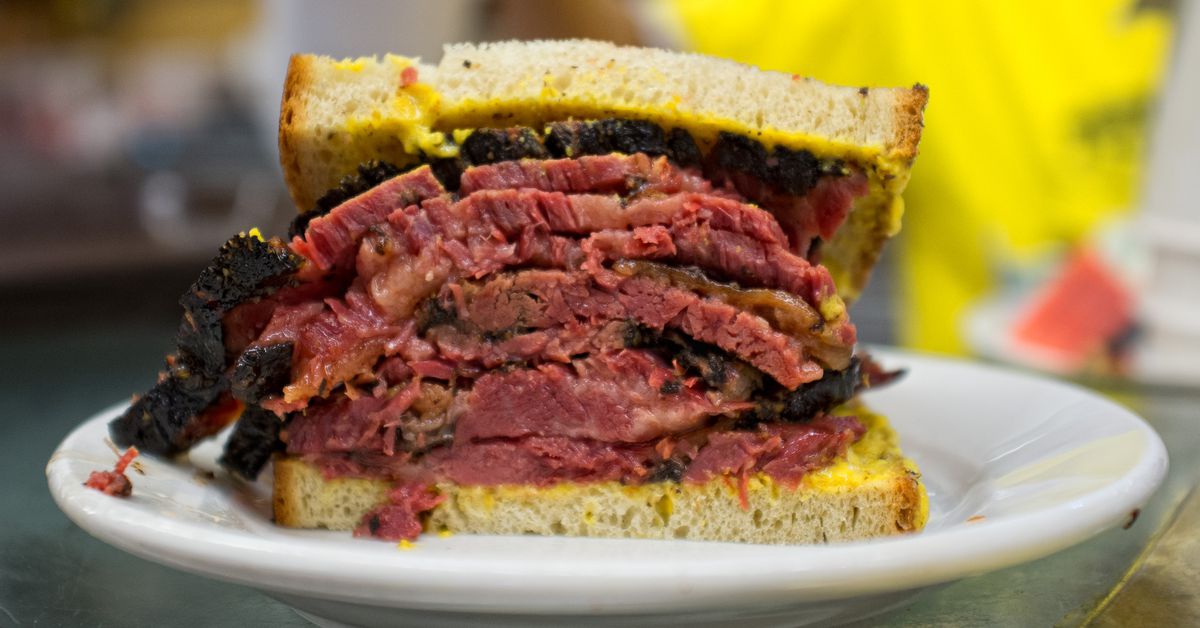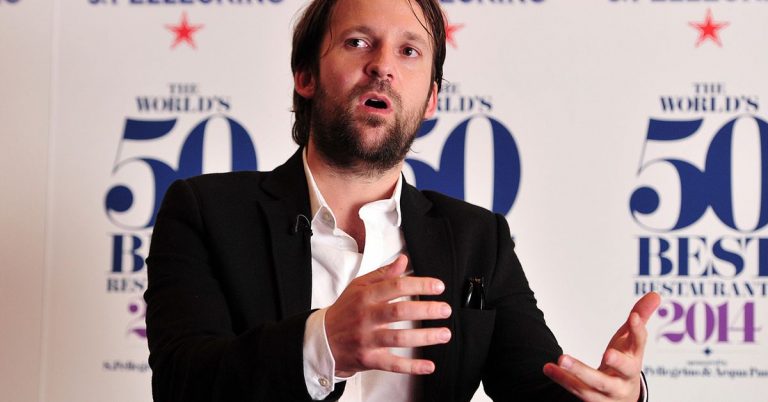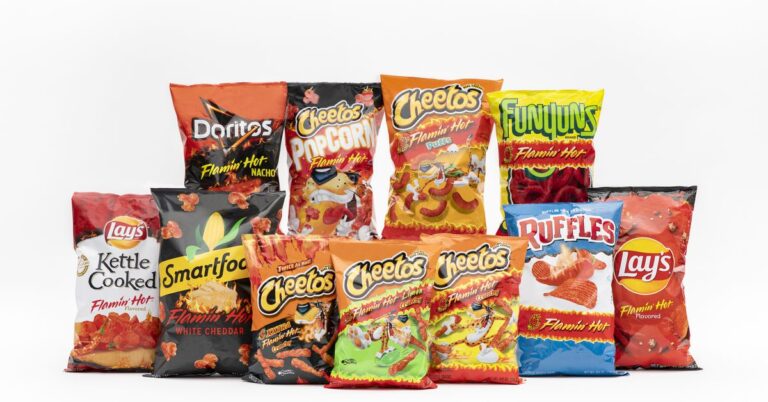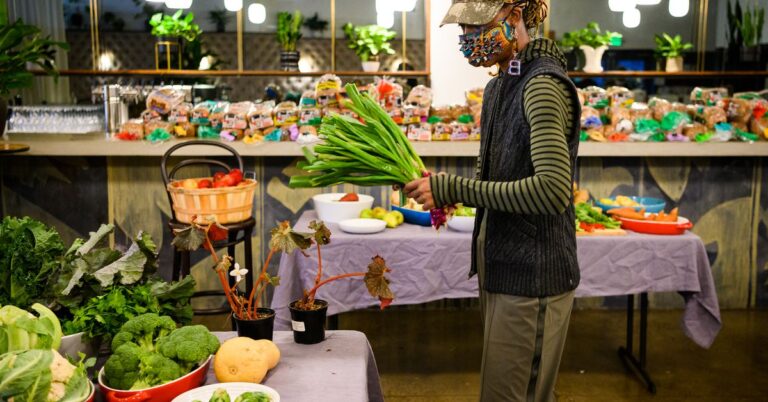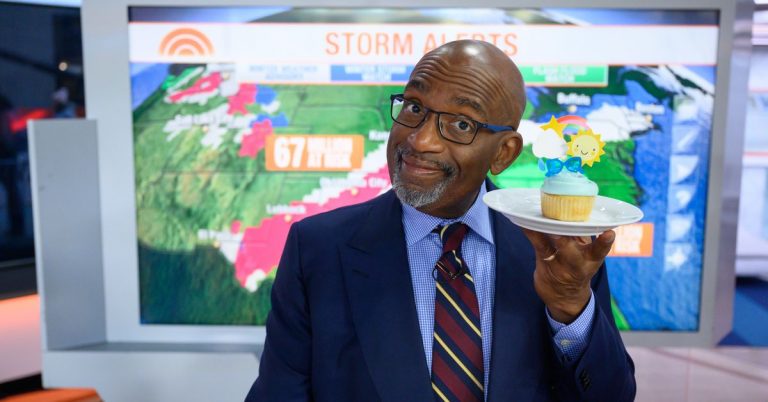DoorDash Is Now Offering ‘National Delivery’ by Shipping Restaurant Food Nationwide
DoorDash can now delivery you fancy caviar service from Carbone and pastrami sandwiches from Katz’s Delicatessen, even if you live nowhere near either of those places: Last week, DoorDash quietly debuted nationwide delivery on its platform, giving customers the ability to have everything from pie to fresh flowers delivered from thousands of miles away. The company’s new nationwide shipping offering seems like a move directly aimed at the neck of Goldbelly, which has been delivering culinary icons like fresh lobster rolls from the Clam Shack in Kennebunkport, Maine, and brisket from Austin’s famed Franklin Barbecue since it was founded in 2013.
Goldbelly has ostensibly proven that food obsessives are willing to pay more than $100 for an order of bagels from Russ & Daughters that’s packed in dry ice and schlepped across the country by FedEx. As a result, the service has been welcomed into the hospitality industry readily by a number of prominent restaurateurs, including Danny Meyer, whose investment firm bought a stake in Goldbelly in 2018; in 2020 during pandemic shutdowns, the site reported a 300% increase in year-over-year business, pulling in an additional $100 million in funding earlier this year. With more and more customers accustomed to the idea of shipping restaurant food across the country (Goldbelly also claims that the pandemic brought in one million new customers in 2020), DoorDash is now looking to gobble up some of that pie.
Following its 2019 acquisition of delivery app Caviar, DoorDash controls a substantial majority of the American food delivery market: according to an analysis conducted by Bloomberg, about 57 percent. In contrast, its closest competitor, UberEats, only controls about 26 percent of the market, and that’s including the share it gained when it dropped upwards of $2 billion to acquire Postmates in 2020. That’s a pretty dramatic shift from 2018, when Grubhub (which also owns Seamless) controlled more than half the market.
Adding nationwide delivery gives DoorDash even more power. Now, it can entice restaurants to exclusively use its platform — Katz’s Delicatessen and Carbone, for example — with a value-add that UberEats just can’t offer. It’s clear that the company is pursuing those exclusivity agreements, too — Cake Boss star Buddy Valastro is baking up a “Sweet Potato Pie Dream Cake” that will only be on offer via DoorDash’s nationwide shipping platform. If DoorDash entices enough restaurants to go national, users could get accustomed to using its app for all their food-delivery and gifting needs.
What is less certain, though, is how this move will impact food delivery in the long term. It’s possible that nationwide shipping could give DoorDash an even tighter grip on the market. It’s also possible that the company could decide that shipping Lou Malnati’s pizzas from Chicago to Connecticut is a more profitable business model than restaurant delivery.
But it faces an uphill battle. Goldbelly has already secured its place in the market thanks to a seriously extensive line-up of vendors from restaurants all over the country. Goldbelly boasts more than 850 restaurants on its platform, compared to less than 30 for DoorDash at its launch. Its customer service is revered, while DoorDash’s has inspired literally thousands of negative reviews on sites like Reddit, SiteJabber, and the Better Business Bureau.
Speaking of terrible reviews, it’s a little puzzling why DoorDash would think that restaurants would want to work with them further. On face, the promise of nationwide delivery seems like a solid option. Spots that are locally beloved and tourist traps alike can hawk their wares to a brand new audience of customers, and that’s especially compelling in a time when profits are more scarce than ever.
That only works, though, if restaurants actually believe that DoorDash can improve their business, and right now, they just don’t have that faith. The company has treated independent restaurateurs like absolute garbage in recent years, charging them exorbitant fees and selling their goods without permission. Why, now, would these establishments trust DoorDash with shipping their signature dishes across the country when, frequently, the still-not-profitable company can’t even get an order across town without issues?
